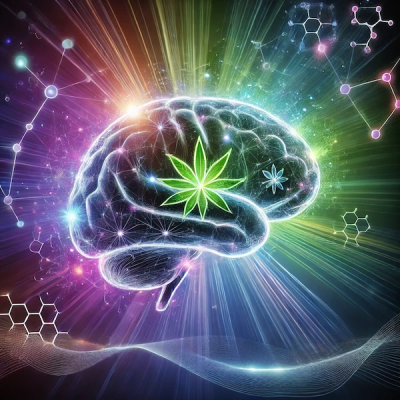Brain regeneration and growth of brain cells thanks to CBG and Cannabinoids
Author: Lucie Garabasova
Scientists around the world are increasingly discovering the positive effects of cannabinoids on the brain. Recent studies show that certain cannabis compounds, such as THC and CBG, can not only slow down brain aging but even promote the growth of new brain cells. What exactly can these substances do, and what is their potential in the field of neuroscience?
THC against brain aging: A hope for the older generation?
Brain aging is associated with neuron loss, reduced learning ability, and memory decline. A study conducted by researchers at the University Hospital in Bonn revealed that low doses of tetrahydrocannabinol (THC)—the main psychoactive compound in cannabis—can reverse the brain's aging process.
How does THC help the brain?
- Activates CB1 receptors, which play a key role in learning and memory.
- Increases the activity of the mTOR protein, which influences cell growth, metabolism, and aging.
- Enhances synaptic plasticity, meaning the ability of neurons to adapt and form new connections.
In an experiment, older mice were given low doses of THC for 28 days. The results showed improved memory function and an increase in synaptic proteins essential for proper neuronal communication.
Interestingly, THC had a dual effect—it increased metabolic activity in the brain while reducing it in fat tissue, mimicking the effects of calorie restriction or exercise, both factors linked to longevity.
You can read the original study HERE.
CBG study: The Cannabinoid that supports brain cell growth
Another fascinating discovery comes from studies on cannabigerol (CBG), known as the "mother of all cannabinoids." Recent research from Washington State University and the University of California, Los Angeles, suggests that CBG promotes brain cell growth and enhances cognitive functions.
What can CBG do?
- Stimulates neurogenesis, the formation of new neurons in the brain.
- Increases brain cell resistance to stress and neurodegeneration.
- Improves memory and cognitive performance—participants in the study who took CBG had a better ability to recall words.
Research indicates that CBG could play a crucial role in protecting the brain from neurodegenerative diseases such as Alzheimer’s and Parkinson’s.

